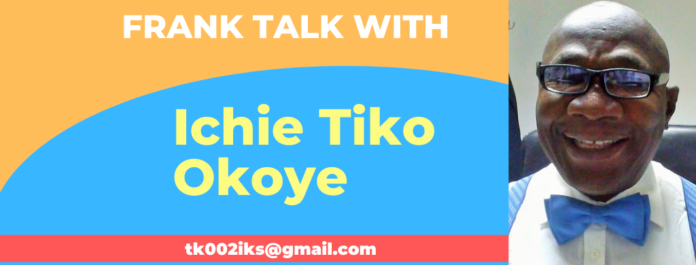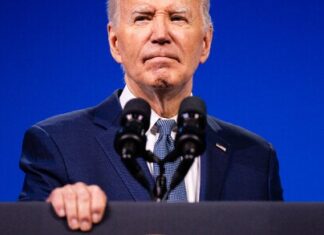Badmouthing the Osun Governorship Election Tribunal judges who wrote the majority decision is nothing more than misplaced aggression.
By Tiko Okoye
Truth be told, except for a motley crowd of super-optimists within the APC support base, the news report that the Osun Governorship Election Tribunal sitting in Oshogbo had sacked Governor Ademola Adeleke jolted most Nigerians, many of who were quick to relate it to the Supreme Court decision that earlier saw Hope Uzodimma sprinting from fourth position to snatch victory from the jaws of defeat.
I can still remember many PDP supporters gushing that the Bimodal Voter Accreditation System (BVAS) was the game changer in guaranteeing the integrity of our elections going forward and that in signing the 2022 Electoral Act – in which it is embedded – onto law, Buhari has irredeemably signed the death warrant of the APC.
This is quite understandable given that there are many among them who maintain that the kind of rigging manual accreditation fosters is far more prevalent in the North where PDP has been performing very dismally since 2015. The poetic justice embedded in the major opposition party turning out to be the first casualty of BVAS is bound to leave a self-satisfied smirk on the faces of APC aficionados.
Due process entails that at the conclusion of any election the results are collated and entered manually on INEC Form EC8A. The number of voters on Form EC8A can be less, but never more, than the number of accredited voters on BVAS. Over-voting is said to have occurred whenever the latter exceeds the former.
At the conclusion of the gubernatorial election, INEC declared that repeat challenger-Adeleke (PDP) had won and incumbent-Governor Adegboyega Oyetola (APC) had lost. Attorneys for the latter and the APC applied for CTCs of the BVAS report and Form EC8A – as did attorneys for the former and PDP. Both camps reportedly found substantial discrepancies between the BVAS reports and Forms EC8A in many polling units. The Oyetola team immediately perceived them as constituting the smoking gun that would return their principal to office. That’s exactly when things started getting curiouser and curiouser.
As a respondent in the Oyetola’s lawsuit, INEC, in a manner that mimicked the conjuring up of a rabbit from a magician’s hat, curiously added/pleaded an entirely different BVAS report it christened a “Synchronized BVAS Report.” It was now left to the Osun Governorship Election Tribunal judges to determine which of the BVAS versions is actionable: is it that issued to APC before they filed their petition or that issued by INEC to ‘Files’ at its head office during the pendency of the petition?
Applying a measure of wisdom comparable in novelty to that of King Solomon handling the contentious case of two women respectively claiming to be the mother of a child, two out of the three judges chose to go with the BVAS INEC used in declaring a winner in the first place rather than a seemingly manipulative ‘working from the answer to the question’ version. That makes good common sense, doesn’t it?
But in a political environment that has become so partisan and divisive it is easier for a camel to pass through the eye of a needle than for simple folks to agree on what differentiates white from black.
READ ALSO: 2023 and dangers of relying on mere assurances
Not surprisingly, all kinds of conspiracy theories have saturated the air. Some continue to point at the good-natured quip about not counting one’s chicks before they hatch (too early in the day for Adeleke to be dancing ‘Buga’) as ‘concrete’ evidence of the a priori bias of the judges!
Another conspiracy theory that has been spreading like a bushfire in the Harmattan holds that one of the parties is preparing to sponsor acts of violence in the strongholds of their opponents as a way of substantially reducing their votes. Even though the relevant provision in the 2022 Electoral Act clearly states a seamless way to resolve such an event and that any candidate harbouring such a crazy notion would easily see it as a no-brainer given the impossibility of fulfilling both conditionalities for being declared the winner of a presidential election, many gullible folks continue to make a song and dance about such fairy tales.
A friend regaled me with the thinking within their political group that Oyetola and APC deliberately set up Adeleke by sending non-BVASed voters to vote in his stronghold. So I asked him if he was also ready to concede that Adeleke equally set up Oyetola by trucking non-accredited voters to cause over-voting in the latter’s stronghold. I vividly recollect that the Ikenne-born sage, Chief Obafemi Awolowo, was once taken to task on the subject of vote-rigging. The iconic political philosopher bellowed unequivocally that one can only rig in one’s stronghold and that a man who trespasses into an enemy’s territory to rig an election must’ve signed a suicide pact.
Leading critics of the judgement – including Dr Monday Ubani, a foremost human rights lawyer and one-time chairman of the Ikeja Branch of the Nigeria Bar Association (NBA) and Dr Abdul Mahmud, a former chairman of the Public Interest Lawyers League – were quick to blast the majority judges as ‘interlopers’ who made a “troubling” decision tantamount to “suborning” the people’s mandate as expressed by the will of the “majority,” thereby posing a “grave danger to the nation’s democracy. They even indecently shaded the judges as lacking in integrity by cancelling the excess votes instead of ordering fresh elections.
But badmouthing the judges who wrote the majority decision is nothing more than misplaced aggression. Rather than vilifying them, such critics should go after unrepentant politicians who, despite a trove of settled election-related cases, remain hell-bent on continuing their electoral shenanigans. It is worth noting that these critics didn’t fault the fact that over-voting did occur. What they seem to be saying is that the judges shouldn’t have looked askance at the telling evidence presented in court; and what seems to bother them the most is the “harsh” remedial measure the judges decided to adopt.
Really? Should judges hearing election petition cases – much in the manner of some football referees – simply wave ‘play on’ and allow politicians brazenly and flagrantly breach fundamental rules of the game, all in the name of respecting an imaginary “people’s will”? What then is the essence of having laws on our books? Given our experiences over time in Nigeria, which essentially constitutes the lesser of two evils in making a caricature of elections – INEC or the judiciary?
What’s even more disappointing is that such critics – among who are ranking members of the Bar – don’t know that the recently amended Electoral Act provides over-voting is only sanctioned by outright cancellation.
Let’s imagine a scenario where a politician brings in thugs to intimidate and scare voters of a different affiliation from being accredited by BVAS. Are these critics saying that once INEC announces the winner of such an electoral farce, the courts should simply hands off because ‘majority’ of the voters have spoken?
We must indeed be very careful what we wish for because a scenario like the one I just gave would guarantee that the ruling party would remain in power till the cows come home through the covert and overt misapplication of the ‘federal might.’ Are the critics saying that it is acceptable for Nigeria to transform into a Hobbesian state where might is right and the judiciary has little or no say?
My take is that we should be grateful to the judges for exposing the length to which dubious INEC officials, party agents and politicians undermine credible elections, giving us ample time to adopt effective remedial measures for the elections starting later this month.
Those screaming that the courts have no place in deciding the outcomes of our elections should think twice. In their naivety they forget that the candidate and party with the deepest pockets readily ride roughshod over their opponents when elections are brazenly monetized, and that the ruling party is more than likely to remain in power till the cows come home through the covert and overt misapplication of the ‘federal might’ during elections.
The Election Petitions Tribunal System was set up for specific purposes so we must allow the judiciary to execute their statutory responsibility. To regain public trust, INEC must immediately clean the Aegean stable constituted by its ICT department and prosecute its officers indicted in the infamy in Osun.
And until politicians decide to follow due process and be guided by the rule of law in all electoral matters, and until INEC ceases and desists from complying with the dictum of “join them if you can’t beat them,” the Judiciary will remain our last hope of bringing some semblance of legitimacy in our electoral system because half-a-loaf-of-bread is better than no-bread.














